|
|
|
|
|
|
|
|
|
American Geophysical Union Fall meeting, December 10-14, 2018 (Washington, DC USA). The AGU 2018 Fall Meeting will mark another dynamic year of discovery in Earth and space science, serve as the advent of AGU's Centennial year, and provide a special opportunity to share our science with world  leaders in Washington, D.C. As the largest Earth and space science gathering in the world, the Fall Meeting places you in th e center of a global community of scientists drawn from myriad fields of study whose work protects the health and welfare of people worldwide, spurs innovation, and informs decisions that are critical to the sustainability of the Earth.
ArcticNet: Annual Scientific Meeting 2018, December 10-14, 2018 (Ottawa, ON Canada). Canada's North is experiencing unprecedented change in its sea and terrestrial ice, permafrost and ecosystems under the triple pressures of climate change, industrialization and modernization. The impacts of these pressures can be seen on food and energy security, shipping, sovereignty, northern community health and well-being, and sustainable development and resource exploitation. All these issues have brought the North to the forefront of national and international agendas. Building on the success of its previous Annual Scientific Meetings and International Arctic Change Conferences, the Arctic Network of Centers of Excellence announces the 14th ArcticNet Annual Scientific Meeting.
|
Media
Report to Congress on Changes in the Arctic. The diminishment of Arctic sea ice has led to increased human activities in the Arctic, and has heightened interest in, and concerns about, the region's future. The United States, by virtue of Alaska, is an Arctic country and has substantial interests in the region. Record low extents of Arctic sea ice over the past decade have focused scientific and policy attention on links to global climate change and projected ice-free seasons in the Arctic within decades. These changes have potential consequences for weather in the United States, access to mineral and biological resources in the Arctic, the economies and cultures of peoples in the region, and national security. USNI
Arctic Warming Pushes the Region - and Planet - Into Uncharted Territory. 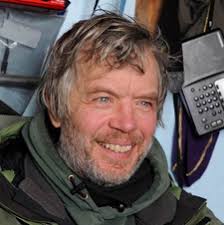  Radio interview with George Divoky, founder and director of CooperIsland Arctic Research and Karen Frey, polar scientist at Clark University. WBUR
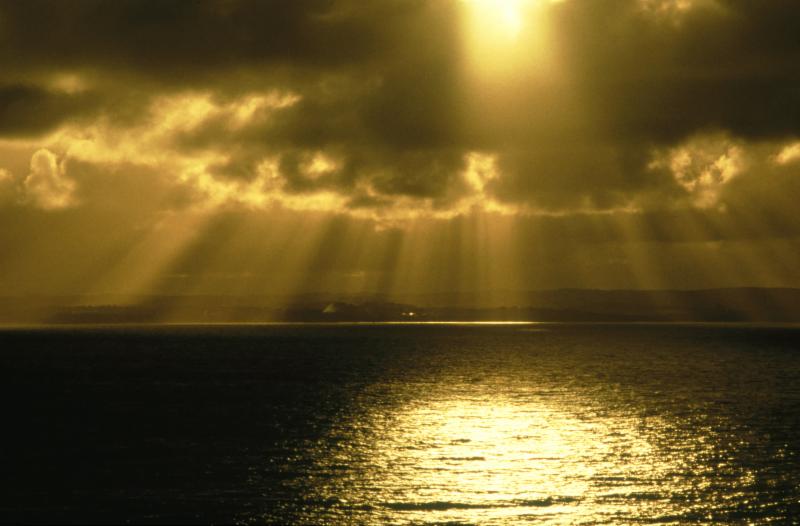 Mercury From Melting Permafrost Ending Up in Arctic Waterways, Study Finds. Mercury From Melting Permafrost Ending Up in Arctic Waterways, Study Finds. As permafrost in the North melts, it's releasing record levels of mercury into Arctic rivers and waterways, graduate students at the University of Alberta have found. The study, published by the journal Environmental Science & Technology on Nov. 26, found that landslides caused by the rapidly thawing permafrost - also called thaw slumps - in Canada's Peel Plateau deposit large amounts of mercury into rivers and streams. The researchers took samples of water in 2015-16, upstream and downstream of permafrost slumps, and compared the concentrations of mercury. CBC News
Trutnev Chair Meeting to Prepare for the Arctic: Territory of Dialogue Forum. Russian Deputy Prime Minister Yury Trutnev paid a working visit to the Arkhangelsk Region and instructed local authorities how to prepare for the upcoming 5th The Arctic: Territory of Dialogue international forum. These preparations will help to create favorable conditions for the work of the business program participants, according to the press service of the Roscongress Foundation, which is in charge of organizing the event. Trutnev who heads the forum's organizing committee, Arkhangelsk Region Governor Igor Orlov and top managers of several specialized agencies visited the city airport, Northern (Arctic) Federal University, due to host most of the business-program events, the embankment of the Northern Dvina River (where exhibition pavilions will be located) and the Lomonosov Arkhangelsk Drama Theater, where the forum's plenary meeting will take place. The Arctic
Study: Degrading Permafrost Puts Arctic Infrastructure at Risk by Mid-  Century. Century. Seventy percent of the current infrastructure in the Arctic has a high potential to be affected by thawing permafrost in the next 30 years. Even meeting the climate change targets of the Paris Agreement will not substantially reduce those projected impacts, according to a new study published in Nature Communications. "Much more needs to be done to prepare Alaska and Alaskans for the adverse consequences of coming changes in permafrost and climate," said Vladimir Romanovsky, a scientist with the University of Alaska Fairbanks Geophysical Institute who has been monitoring permafrost across Alaska for 25 years. Juneau Empire
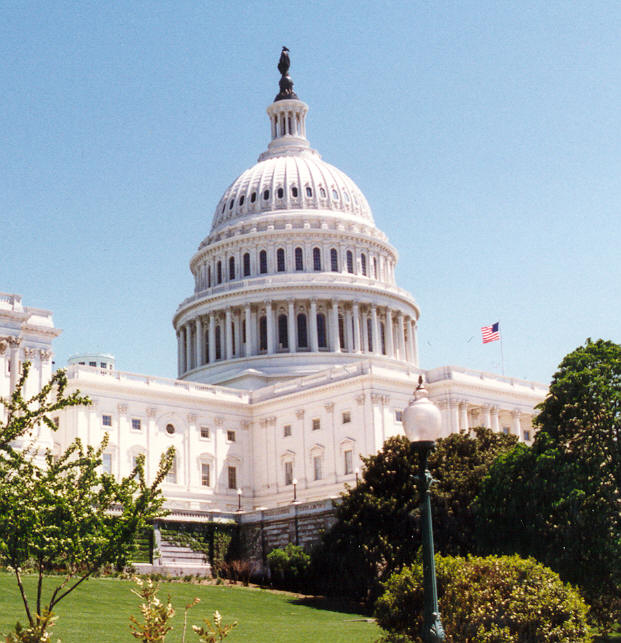 House Funding Bill Scraps Arctic Icebreaker Program. House Funding Bill Scraps Arctic Icebreaker Program. The Homeland Security funding bill that includes the $5 billion requested by President Trump for his proposed border wall would scrap a program to expand the U.S. icebreaker presence in the Arctic. The Senate version of the funding bill and an earlier version passed by the House Appropriations Committee both include $750 million for the program, but the current House version of the funding bill does not include money for the icebreaker program. The Hill
DHS, Coast Guard Preparing Robot Probe for Arctic Oil Spills. The Coast Guard and Department of Homeland Security (specifically the Arctic Domain Awareness Center at the Univ. of Alaska) are testing an autonomous underwater vehicle as part of their preparations for future hazardous material and oil spills in the Arctic. With environmental changes bringing more shipping to the high latitudes, the Coast Guard faces major challenges in spill response. Its focus is ensuring access to early and on-going information about the nature and magnitude of spills to help with effective cleanup. Workboat
|
|
Future Events
Fast Thaw, December 14, 2018 (Washington, DC USA). Arctic 21 will host a presentation with Dr. Katey Walter Anthony. The discussion with consider permafrost thaw and methane emissions from lakes in the Arctic.
'UK-US Maritime, Aerospace and Security Cooperation in the Arctic'. Delegates will discuss and debate trade and security-focused Arctic collaboration in the Arctic between US, the UK, and their allies. This convening is designed to deepen the UK-US special relationship by strengthening trade and cooperation in four areas in particular: maritime services, aerospace, fisheries, defense and security. The Arctic Encounter London is co-produced by the Polar Research and Policy Initiative and the Arctic Encounter. The Polar Research and Policy Initiative (PRPI) is a London-based international think-tank dedicated to Arctic, Nordic, North Atlantic, North Pacific and Antarctic affairs. The Arctic Encounter is the largest annual Arctic policy and business conference convening in the United States, with partnerships and convening efforts worldwide.
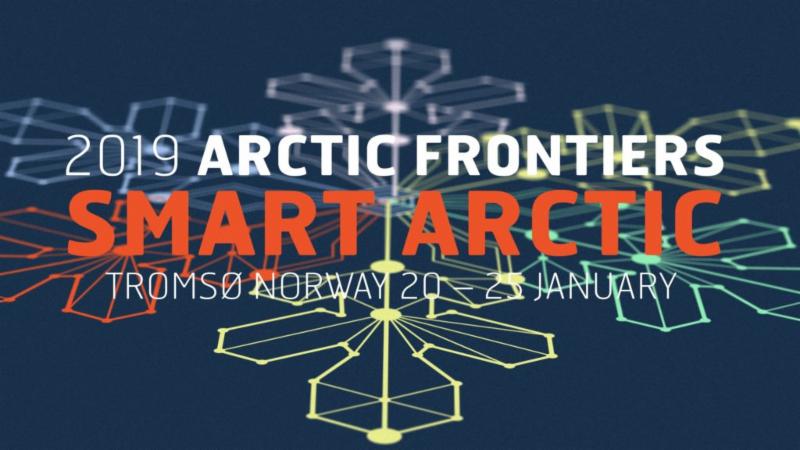 Arctic Frontiers, January 20-25, 2019 (Tromso, Norway). The Arctic Frontiers is a global scientific conference on economic, societal, and environmental sustainable growth. This year's theme will be "Smart Arctic," with a pan-arctic emphasis, and an effort to build new partnerships across nations, generations and ethnic groups. Arctic Frontiers provides a forum for dialogue and communication between science, government and industry. The plenary program will have five main sessions: State of the Arctic, Blue Growth, Smart Solutions, Bridging the Gap, and Arctic business prospects. An abstract-driven science program will address Plastics in the Ocean, the Future of Governance and Handling Vulnerability in Arctic Ecosystems, State of the Arctic and A Smart Arctic Future.
Save the Date! 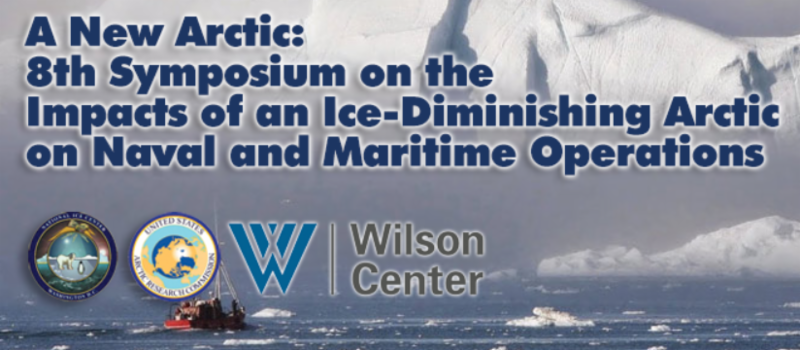
Mark your calendars to attend IDA-8, which some have called one of the best Arctic gatherings around. Historically, this biennial symposium was co-hosted by U.S. National/Naval Ice Center (NIC) and the US Arctic Research Commission (USARC). In 2019, these partners will join forces with the preeminent Wilson Center's Polar Institute, as a third co-host. The now 2-day symposium will be held in the Ronald Reagan Building Amphitheater, in Washington, DC. The event will focus on a broad cross-section of naval and maritime operations and issues in an ice-diminishing Arctic. The symposium brings together nationally and internationally recognized experts on Arctic governance, geopolitics, marine operations, infrastructure, science, and environmental observations, from the local, regional, and pan-Arctic scale. Information on prior symposia, including lists of speakers, video clips, and copies of presentations, is available here. Attendance is free, and registration will begin in Spring 2019. The event will be webcast live, and video recorded.
 of the AAG includes over 8,500 geographers converging from the U.S., Canada, and nearly 60 other countries in a typical year including geographers, GIS specialists, environmental scientists, and other leaders for the latest in research and applications in geography, sustainability, and GIScience. of the AAG includes over 8,500 geographers converging from the U.S., Canada, and nearly 60 other countries in a typical year including geographers, GIS specialists, environmental scientists, and other leaders for the latest in research and applications in geography, sustainability, and GIScience.
** New this week ** The 6th Annual Arctic Encounter Seattle, April 25-26, 2019 (Seattle, WA, USA). The sixth annual Arctic Encounter Seattle will engage the topic of innovation in the Arctic, specifically disruptive business and investment models, energy and power, climate research, national security, new economic and trade models, and popular media and awareness movements impacting the Far North. The 2018 Arctic Encounter Seattle drew over 300 participants from across Alaska, the U.S., and the world, including over 100 speakers, 32 sponsors, 11 media partners, fashion and photography installations, a live permafrost exhibition, 13 guest performers, fashion designers, and artist exhibitors to the downtown Seattle waterfront at Pier 66. The 2019 Arctic Encounter Seattle expects to increase engagement in new sectors and engage participants through policy debates, research presentations, performances, and more. The two-day Arctic Encounter Seattle will include an opening reception, two continental breakfasts, two keynote luncheons, a networking reception with Alaskan glacier ice cocktails, and a seated three course dinner including keynotes and live musical entertainment from the Far North. The Arctic Encounter is the largest annual Arctic policy and business conference convening in the United States, with partnerships and convening efforts worldwide.
|
|

  
4350 N. Fairfax Drive, Suite 510
Arlington, VA 22203, USA
External links in this publication, and on the USARC's World Wide Web site ( www.arctic.gov) do not constitute endorsement by the US Arctic Research Commission of external Web sites or the information, products or services contained therein. For other than authorized activities, the USARC does not exercise any editorial control over the information you may find at these locations. These links are provided consistent with the stated purpose of this newsletter and the USARC Web site.
|
|
|
|
|
|
|
|
|